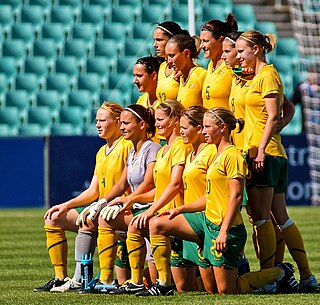Background
The former New Zealand National Soccer League, which spanned from 1970 to 1992, had faced several financial issues during its existence, primarly travel expenses associated with teams partaking in a nationwide tournament. In order to mitigate travel expenses, the national tournament was replaced by a regional tournament, the winning teams in each region then competed in a subsequently shorter national tournament (the Superclub competition). However, this tournament also had drawbacks of its own, specifically the dilution of playing standard caused by the inclusion of more amatuer teams in each region. After just three seasons of the Superclub competition it was scrapped and ultimately replaced by a new competition, the National Summer Soccer League.
The new league included invited teams, rather than featuring the traditional promotion and relegation system. Selection criteria for these teams involved the financial strength of the club and its location. The league also featured a championship play-off session at the end of the seasons, involving teams finishing high in the table. The new competition was played during the summer months, with the 1996 season running from January to May, and subsequent seasons running from November to March (the season being named for the year in which the final took place).
Ten teams competedin the 1996 and 1997 seasons; eleven took part in the 1998 campaign. The competition operated as a round-robin league, with each team playing every other team twice, once at each team's home ground. The top teams at the end of this league section would then qualify for a play-off series culminating in a final. In the first two seasons, the top two league sides would play each other, with the winner of that match advancing directly to the final. The loser would play the winner of a match between third- and fourth-placed sides. The winner of that tie would then qualify as the other finalist. In the 1998 season this process was simplified, with the final taking place between the first-placed side at the end of the league section of the season and the winner of a match between the second- and third-placed sides.
For the first two seasons in which the competition operated, a unique system of awarding points was used, though this was scrapped at the end of the 1997 season to be replaced by the traditional 3-1-0 system. In the 1996 and 1997 seasons, teams were awarded four points for a win and one for a draw. In drawn matches, a penalty shoot-out (three shots per side) would then take place, with the winning side awarded a bonus point.
The playoffs, play-offs, postseason or finals of a sports league are a competition played after the regular season by the top competitors to determine the league champion or a similar accolade. Depending on the league, the playoffs may be either a single game, a series of games, or a tournament, and may use a single-elimination system or one of several other different playoff formats. Playoff, in regard to international fixtures, is to qualify or progress to the next round of a competition or tournament.

The OFC Nations Cup is an international association football tournament held among the OFC member nations. It was held every two years from 1996 to 2004; before 1996 there were two other tournaments held at irregular intervals, under the name Oceania Nations Cup. No competition was held in 2006, but in the 2008 edition, which also acted as a qualification tournament for the 2009 FIFA Confederations Cup and for a play-off for the 2010 FIFA World Cup, the New Zealand national football team emerged as winners.
The National Soccer League (NSL) was the top-level soccer league in Australia, run by Soccer Australia and later the Australian Soccer Association. The NSL, the A-League's predecessor, spanned 28 seasons from its inception in 1977 until its demise in 2004, when it was succeeded by the A-League competition run by Football Federation Australia, the successor to the Australian Soccer Association.

The UEFA Intertoto Cup, often abbreviated and more known in the German-speaking world as UI Cup and originally called the International Football Cup, was a summer football competition. The competition was discontinued after the 2008 tournament. Teams who originally would have entered the Intertoto Cup now directly enter the qualifying stages of the UEFA Europa League from this point.
The Chatham Cup is New Zealand's premier knockout tournament in men's association football. It is held annually, with the final contested in September. The current champions of the Chatham Cup are 2022 winners Auckland City, who defeated Eastern Suburbs 1–0 in the final.

New Zealand Football is the governing body for the sport of association football in New Zealand. It oversees the seven New Zealand Football federations, as well as the New Zealand national football team, the national junior and women's teams, the men's and women's national Leagues New Zealand National League, National Women's League, and a number of tournaments, including the Chatham Cup and Kate Sheppard Cup. A New Zealand team, Wellington Phoenix FC who plays in the Australian A-League also comes under New Zealand Football jurisdiction.

The New Zealand Football Championship was a men's association football league at the top of the New Zealand league system. Founded in 2004, the New Zealand Football Championship was the successor to a myriad of short-lived football leagues in the country, including the National Soccer League, the National Summer Soccer League and the New Zealand Superclub League. The league was contested by ten teams in a franchise system. For sponsorship reasons, the competition was known as the ISPS Handa Men's Premiership. From the 2021-22 season, it was replaced by the New Zealand National League.

Ricki Lloyd Herbert is a New Zealand former footballer and manager. He is the current technical director at Cambridge FC.

The 1998–99 UEFA Champions League was the 44th season of the UEFA Champions League, Europe's premier club football tournament, and the seventh since it was renamed from the "European Champion Clubs' Cup" or "European Cup". The competition was won by Manchester United, coming back from a goal down in the last two minutes of injury time to defeat Bayern Munich 2–1 in the final. Teddy Sheringham and Ole Gunnar Solskjær scored United's goals after Bayern had hit the post and the bar. They were the first English club to win Europe's premier club football tournament since 1984 and were also the first English club to reach a Champions League final since the Heysel Stadium disaster and the subsequent banning of English clubs from all UEFA competitions between 1985 and 1990. It was the first time since 1968 that Manchester United won the Champions League, giving them their second title.
The New Zealand National League is the name given to the current New Zealand top football competition. Originally set up as the New Zealand National Soccer League there has been many versions of the competition as well as many different names. The most common format saw club teams play each other, at least two times, on a home and away basis. At the completion of those games, the best-performing team was declared as the New Zealand champion. The latest version has the clubs play in their regional leagues with the top teams qualifying for the Championship phase to then play each other for the champion.

The CONCACAF Champions League, known officially as the Scotiabank CONCACAF Champions League for sponsorship reasons, is an annual continental club football competition organized by CONCACAF. The tournament is contested by clubs from North America, Central America, and the Caribbean. The winner of the CONCACAF Champions League automatically qualifies for the quarter-finals of the FIFA Club World Cup.

The Central League is an amateur status league competition run by Capital Football for Association football clubs located in the southern and central parts of the North Island, New Zealand. From 2021 it is at the second level of New Zealand Football below the National League, which has replaced the national association based ISPS Handa Premiership.

The Liga MX, officially known as the Liga BBVA MX for sponsorship reasons, is the top professional football division in Mexico, holding 2 tournaments per year.
Waikato United was an association football club in Waikato, New Zealand.
The Superclub league was a national association football league competition which ran in New Zealand from 1993 to 1995. It replaced the first incarnation of the New Zealand National Soccer League and was itself replaced by the National Summer Soccer League.
The 1995 Superclub competition was the third and final season of a nationwide association football club competition in New Zealand. It was won by Waitakere City.
The 1996 National Summer Soccer League was the inaugural season of a short-lived nationwide association football club competition in New Zealand. The competition replaced the Superclub competition, which operated until 1995. The 1996 series was won by Waitakere City.
The 1997 National Summer Soccer League was the second season of a short-lived nationwide association football club competition in New Zealand. Despite being known as the 1997 league, competition started in November 1996, with the later rounds and final playoffs held in 1997. The competition was won by Waitakere City.
The 1997–98 National Summer Soccer League was the third and final season of a short-lived nationwide association football club competition in New Zealand. It was replaced in 1999 by the second incarnation of the New Zealand National Soccer League. The competition was won by Napier City Rovers.

Women's soccer, also known as women's football, is a popular sport in Australia. The sport has a high level of participation in the country both recreational and professional. Football Australia is the national governing body of the sport in Australia, organising the A-League Women, the Australian women's national team, and the nine state governing bodies of the game, among other duties. Women's participation of modern soccer has been recorded since the early 1920s. It has since become one of Australia's most popular women's team sports.









